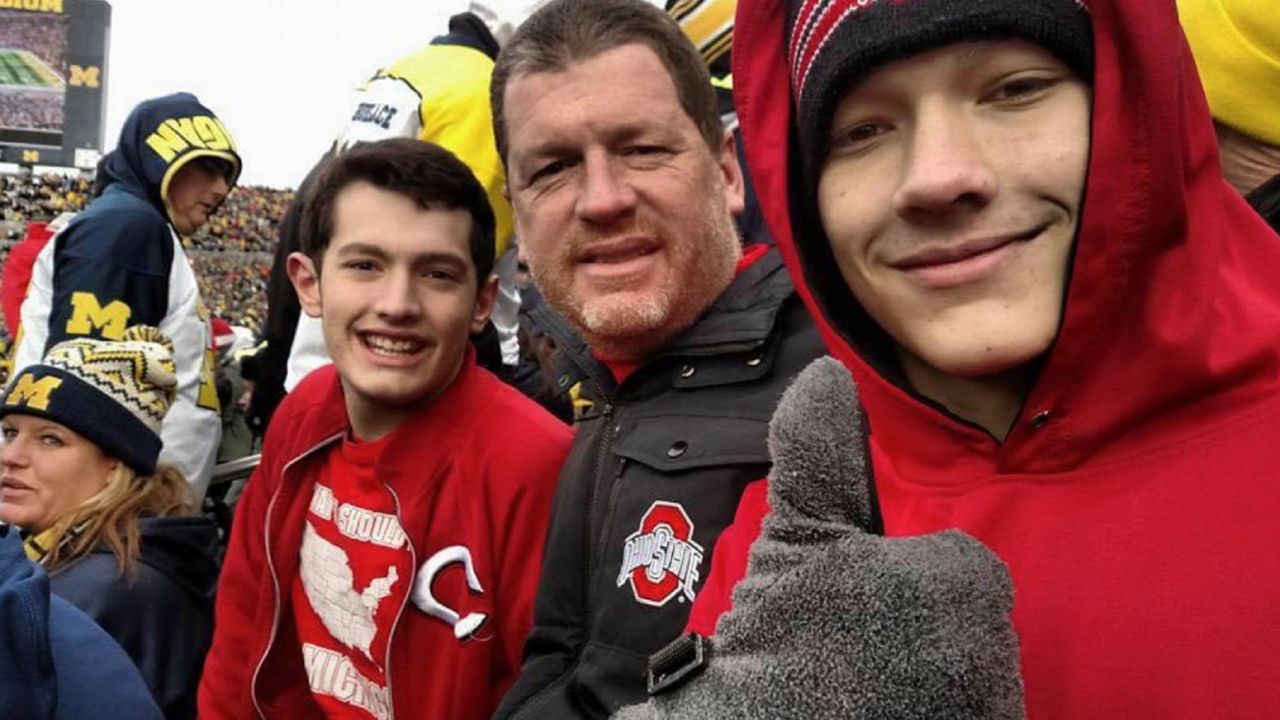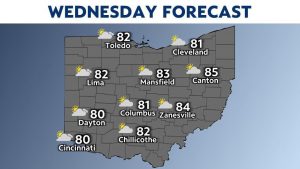As the 2020 Democratic convention closed, a smile creased Joe Biden’s face. Then he put on a facemask and watched the fireworks with his running mate, Sen. Kamala Harris of California, similarly protected in this political season in a plague year.
It seemed to fit the mood. During Biden’s nearly 25-minute speech, and all along four days of a quarantined convention, amid but few balloons and pixelated images of applauding fans, there pulsed an undercurrent of sadness.
How could it not? No one could travel to the convention. Delegates couldn’t stand and cheer and applaud together. The death count from COVID-19 creeps towards 200,000. In-person school is in many places iffy, at least for now. The unemployment rate is past 10 percent. How many businesses wiped out?
Biden, 77, tried to offer himself as a balm.
“Here and now, I give you my word: If you entrust me with the presidency, I will draw on the best of us, not the worst. I’ll be an ally of the light not the darkness.”
Eulogies are what Joe Biden is known for. He’s given many over the years, for fellow Senators like Ted Kennedy and John McCain. There are reasons he is asked: his longevity in the Senate; his flair for words, for Irish poets. And because Joe Biden knows pain.
There were more than hints of eulogy in his speech.
His personal tragedy is well-known, and was repeated often in the convention. He was 29 when his wife and 1-year old daughter were killed in a car accident Christmas shopping. Their sons, 4 and 3, were injured. Biden had just been elected to the U.S. Senate and was hiring staff when he got the call.
Then in 2015, Biden’s son Beau died of cancer at age 46.
“I understand how hard it is to have any hope right now,” Joe Biden said. “On this summer night, let me take a moment to speak to those of you who have lost the most.”
“I know how mean, cruel and unfair life can be sometimes. But I’ve learned two things. First, your loved one may have left this earth, but they’ll never leave your heart.”
“The second: I found the best way through pain and loss and grief is to find purpose. As God’s children. Each of us have (sic) a purpose in our lives.”
There were repeated testimonials to Biden’s faith in this convention, as if to rebut Pres. Donald Trump’s accusation this month Biden is “against God.” The historian Jon Meacham talked about the national and individual soul. There was a replay of an exchange between Biden and a pastor on the 2015 Charleston, South Carolina church massacre.
Republicans dismiss the Democrats’ four days as overly sad.
Of the Republicans, whose turn starts Monday, RNC Chairwoman Ronna McDaniel said on Fox News Thursday:
“It will be more aspirational, less grim, less attacking, more of a greatness of America and what we are.”
Biden’s Democrats are looking to peel away Trump voters and disenchanted Republicans and independents – even perhaps at the risk of losing Progressives.
Amid grumbling, former New York City Mayor Michael Bloomberg, a former Republican, was given a coveted speaking spot.
Sen. Bernie Sanders of Vermont vouched for Biden several times, as did other opponents in the primary including Sen. Elizabeth Warren (D-Mass.) Biden is trying to straddle several lines, with fervent distaste for Trump perhaps what holds the party together.
But Biden is also a creature of the U.S. Senate, who has spoken wistfully of a bygone collegiality there. In this, his third presidential run, Biden is appealing to post-partisanship that some may deem dated and fanciful.
“While I’ll be a Democratic candidate, I’ll be an American president,” he said. “I’ll work hard for those who didn’t support me – as hard for them as I do for those who did vote for me.”
Finally, it wouldn’t be a Biden speech without a quote from an Irish poet; this time, Seamus Heaney, from the play “The Cure at Troy.”
History says, don’t hope
On this side of the grave.
But then, once in a lifetime
The longed-for tidal wave
Of justice can rise up,
And hope and history rhyme.
Meg Tyler, director of the Institute for the Study of Irish Culture at Boston University, wrote in a late night email to Spectrum News that the poem depicts a moment when ancient Greeks are worn from years of war.
An archer is “persuaded to transcend his personal sorrows and to make a sacrifice for the common good. The sacrifice entailed giving up the nursing of his wounds, his wounded pride. He had to let go his bitterness and his victimhood and act to better the collective.”
Tyler said “Heaney acts as a moral compass for Biden,” but Biden’s speech left her somewhat unfilled.
“At least this man’s heart is trying to be in the right place,” she wrote.
By his own admission, Biden is an imperfect candidate. His party would second that; he certainly doesn’t stir the enthusiasm of the man for whom he was Vice President.
But Joe Biden is now the nominee – and he hopes a uniquely suited one for the time, attempting to illustrate that through his own life story, national purpose and resilience are possible.




